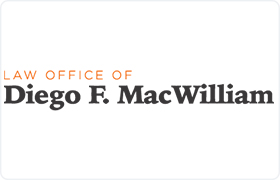Sunnyvale Divorce & Family Law Lawyer, California
Sponsored Law Firm
-
 x
x

Click For More Info:
-
The Law Office of Diego F. MacWilliam
1625 The Alameda, Suite 800 San Jose, CA 95126» view mapDivorce & Family Law Persistent. Professional. Reputable.
Attorney Diego F. MacWilliam works closely with clients to provide unique solutions tailored to fulfill their specific needs.
800-735-1570
Diego MacWilliam
✓ VERIFIEDThe Law Office of Diego F. MacWilliam has been in practice throughout the San Francisco Bay Area for over 20 years. The firm handles divorce, legal s... (more)
Cory Lee Fuller
Cory Lee Fuller is a seasoned criminal defense and personal injury attorney who is dedicated to protecting the legal rights his clients. Born and rais... (more)
Amiel Lee Wade
✓ VERIFIEDAttorney Wade specializes in civil litigation, conducting jury trials in complex cases and in helping individuals and businesses in every phase of the... (more)
Cynthia S. Cho
✓ VERIFIEDCynthia Cho is the founder of the CC Law Group and its principal attorney.Cynthia has built her reputation as a highly successful attorney by being no... (more)
Steven D. Hoffman
FREE CONSULTATION
CONTACTElizabeth A. Puttock
FREE CONSULTATION
CONTACTEvelyn M. Rodriguez
FREE CONSULTATION
CONTACT Diego MacWilliam San Jose, CA
Diego MacWilliam San Jose, CA




